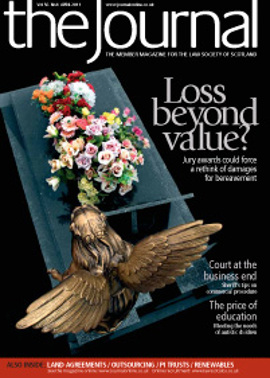The learning curve

In this age of smart phones, social networking and ever-increasing expectations of availability, the importance of effective communication for aspiring lawyers cannot be overstated. A good communicator will stand out from the crowd and win the respect and confidence of their peers, employers, other professionals, and ultimately clients.
As a trainee, you often have to “think on your feet” quite literally, and an essential element of this is mastering how to communicate clearly and concisely in a variety of environments, which will invariably be stressful.
The ability to translate technical knowledge, analysis and experience into simple – yet accurate – language, which is appropriate for the circumstances, is undoubtedly a key skill for any lawyer and one which trainees, in particular, should focus on.
What is the message?
The starting point with any form of communication is to consider exactly what you are trying to say and make sure that that is clear in your own mind. Consideration should then be given to your intended audience. Put yourself in the receiver’s shoes and always use language they will understand.
Whether it’s a meeting, a letter, an email or a phone call, remember to prepare thoroughly – a good idea is to make a list of salient points you need to cover and then check these off as you do so.
Don’t be scared to labour a point to make sure you have been understood; better this than gloss over something, only for your advice to be lost in translation.
It is likely that certain legal acts, such as concluding a contract or settling a claim, will follow on your correspondence, so it is imperative to make sure that all parties are clear on the position; there really is nothing worse than discovering that there has been an avoidable misunderstanding once it’s too late.
Mind your language
Communication should be kept as simple as possible, but not of course at the expense of accuracy. In particular, be careful not to be ambiguous or loose with terminology: after all, as paid professionals, clients need to be able to understand our advice.
This means being adaptable and using different language and tone for different situations to ensure that your objectives are properly met in a professional yet accessible manner.
Where correspondence is in writing, it goes without saying that it should be checked over to eliminate any errors and firm up on clarity. Emails, in particular, deserve a special mention as they can, and will, be misconstrued unless you take care when drafting and checking them.
The basis of trust
Reliable people are worth their weight in gold. As a trainee, you would be well advised to
set your sights on gaining a reputation for being a solid and dependable individual who can be relied on to “get the job done”.
A hard-work ethic is the foundation for this, backed up by a “can-do” attitude. Whatever you do, don’t make promises you can’t keep, but do be prepared to go that extra mile to get things done on time to the highest possible standard.
A reliable trainee will get the best quality work because their colleagues will have the confidence that their instructions will be followed. It can take months and even years to build that confidence with colleagues and clients alike, but only a very short time to erode it. You should therefore be prepared to work hard to earn a sound reputation, and then even harder to maintain it.
It may, on occasion, appear to a trainee that their tasks are of little significance and no great attention is being paid to how and when they are done. Be assured, however, that this is not the case. The same level of care and attention should be applied to all tasks with a view to demonstrating to colleagues that you have the requisite steady mindset to be a successful lawyer.
Being seen as reliable is, in essence, about getting a good job done, on time. Great care should therefore be taken to clarify instructions: exactly what you are being asked to do and what the time sensitivities are. Once that is clear, some thought should be given as to whether there are any other points which require to be addressed: be proactive and use your initiative to make sure you give yourself the best chance of reaching your goal.
In a busy office environment driven by deadlines and targets, reliable trainees who more often than not deliver, become highly valued members of their teams. In these competitive times, it is important, even at the inception of your career, to be seen as someone who delivers results.
In this issue
- Civil legal aid in the supreme courts
- Ever-eventful year
- Coming out - on top
- In the awards
- The price of grief
- Commercially driven
- Autism and the good society
- Guardians of the PIT
- Arbitration outreach
- The cloud? It's down to earth...
- Searching for a constitution
- Complaints update: disclosing information
- Dean waives cab rank rule in civil legal aid cases
- Law reform update
- The learning curve
- Legal services outsourcing: don't miss the boat
- Ask Ash
- The right steer
- No second chance
- Burning a hole in the law
- Protecting the prescribed part
- Final brick in place
- Scottish Solicitors' Discipline Tribunal
- Website review
- Book reviews
- Stretching the public purse
- Land and the open market
- Easing the burdens?
- It's an ill wind...






